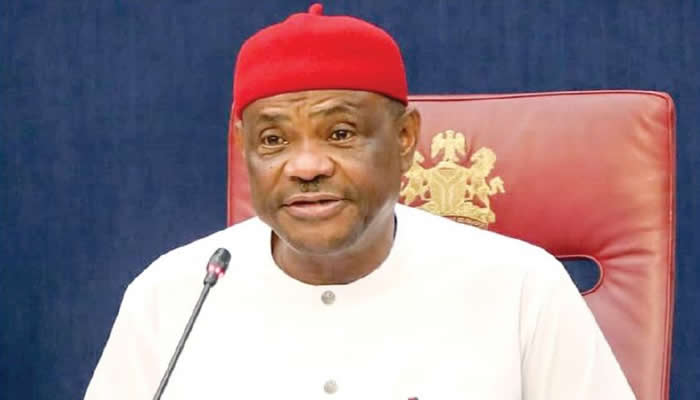
Why Are Senators Earning ₦30 Million While Policemen Struggle? – Sowore Sparks Fresh Debate on Wage Justice

In what has ignited yet another wave of public outrage and debate over Nigeria’s glaring wage inequality, human rights activist and former presidential candidate, Omoyele Sowore, has declared that the Nigerian government must re-evaluate its priorities by paying policemen at least ₦500,000 monthly, while slamming the current ₦30 million salary structure for senators as excessive, unjustifiable, and an insult to ordinary Nigerians.
Sowore, known for his outspoken stance against corruption and institutional injustice, made the statement while addressing journalists at a public function on Monday, stressing that Nigeria’s democratic experiment has been hijacked by gluttonous lawmakers who feed fat on public resources, while security personnel — especially those on the frontlines like the police — are left to wallow in poverty, frustration, and disillusionment.
"How do you justify paying someone risking his life every day to protect lives and property a meagre salary that cannot feed a family, while a senator who sits in an air-conditioned office, mostly absent from plenary, pockets ₦30 million a month?” Sowore asked with a visible expression of disbelief. “We must be honest with ourselves. The Nigerian system is broken. Our leaders are not ashamed to loot in broad daylight, and this is why crime, insecurity, and corruption persist.”
His comments come at a time when public trust in the Nigerian Police Force has reached new lows due to issues of poor welfare, systemic corruption, and widespread inefficiency. For many Nigerians, the sight of hungry, underpaid policemen extorting motorists at checkpoints or demanding bribes to perform basic duties has become a tragic norm. And while blame is often heaped on the officers themselves, Sowore insists that the root of the problem lies higher up — in the policy decisions that keep the average officer impoverished and powerless.
According to Sowore, increasing police salaries to ₦500,000 monthly is not only fair but long overdue. He argues that beyond economic justice, it is a strategic move that would uplift the morale of officers, reduce the temptation to extort citizens, and ultimately restore a measure of dignity to the uniform.
“Even criminals don’t respect the police anymore,” he added. “Because they know that the man with the gun has empty pockets and no motivation to defend himself, let alone defend you. What do you expect from a man who cannot feed his children or pay rent, yet is supposed to chase armed robbers or terrorists?”
He went further to contrast the lifestyle of senators with that of the average police officer, painting a picture of grotesque inequality that many Nigerians have come to resent. “These senators fly private jets, travel abroad for medicals, and send their children to Ivy League schools, while the average policeman begs for recharge card or borrows money for transport. It’s madness.”
The controversial statement has since gone viral on social media, where many Nigerians have echoed Sowore’s sentiments with both anger and despair. Several hashtags, including #500kForPolice and #CutSenatorsPay, began trending by Tuesday morning as users took to X (formerly Twitter), Facebook, and Instagram to voice their frustrations.
One user, @NairaConscience, tweeted: “Sowore said it and he said it well. Nigerian policemen need a living wage. Let’s stop pretending they’re not human too.” Another user, @ThisIsNaijaReal, wrote: “Senators earn ₦30 million monthly for doing next to nothing, but a police officer dies in service with less than ₦100k salary. Is this not injustice?”
A former police officer who chose to remain anonymous also weighed in, saying, “I left the Force after 12 years of service because I couldn’t survive. I was a sergeant, and my salary was barely ₦55,000. I had to bribe to get promotion. We slept in leaking barracks, bought our own uniforms, and even bought fuel for patrol vehicles from our pockets. Is that a life?”
The National Assembly has yet to respond officially to Sowore’s statement, but sources say some lawmakers have described his comments as “irresponsible populism” and an attempt to stir public anger against the legislature. A senator from the North West, who declined to be named, reportedly told journalists, “Sowore is always looking for attention. He doesn’t understand the complexities of governance or legislative budgeting. It’s not as simple as slashing our pay.”
Still, public anger continues to mount, especially at a time when inflation, rising fuel costs, and insecurity have made life nearly unbearable for the average Nigerian. The revelation that senators are earning ₦30 million monthly, in a country where minimum wage is still ₦30,000, has reignited the call for urgent reform in Nigeria’s fiscal policy, especially in matters related to the remuneration of public office holders.
Analysts argue that the imbalance in earnings not only highlights Nigeria’s class divide but also fuels resentment among citizens who already feel abandoned by those in power. Economic analyst Bukola Ajayi noted, “This isn’t just about salaries. It’s about fairness. When people perceive that the system is skewed in favor of the political elite while the rest struggle, you get discontent, crime, even civil unrest.”
Sowore’s call for ₦500,000 as a base salary for police officers also raises questions about Nigeria’s revenue allocation and budgetary priorities. While critics may argue that the country cannot afford such pay raises due to its current economic state, others insist that what Nigeria lacks is not resources, but accountability. Several watchdog reports have shown billions lost to corruption, mismanagement, and frivolous expenditures by government officials — expenditures that could easily fund better wages for essential service workers.
As the debate rages on, many Nigerians are now demanding not just a review of police salaries but a complete overhaul of the country’s compensation structure for public servants, from the executive down to the civil service. The general sentiment is clear: those who work and bleed for the nation should not be left in hunger, while those who legislate in air-conditioned offices live in excess.
Omoyele Sowore may be controversial in his methods and rhetoric, but on this issue, he appears to have struck a nerve that resonates with the vast majority of Nigerians. Whether the government will act on this growing demand for wage justice remains to be seen, but one thing is certain: the days of silence in the face of inequality are fast fading. The streets are watching, the voices are rising, and a reckoning may be on the horizon.


